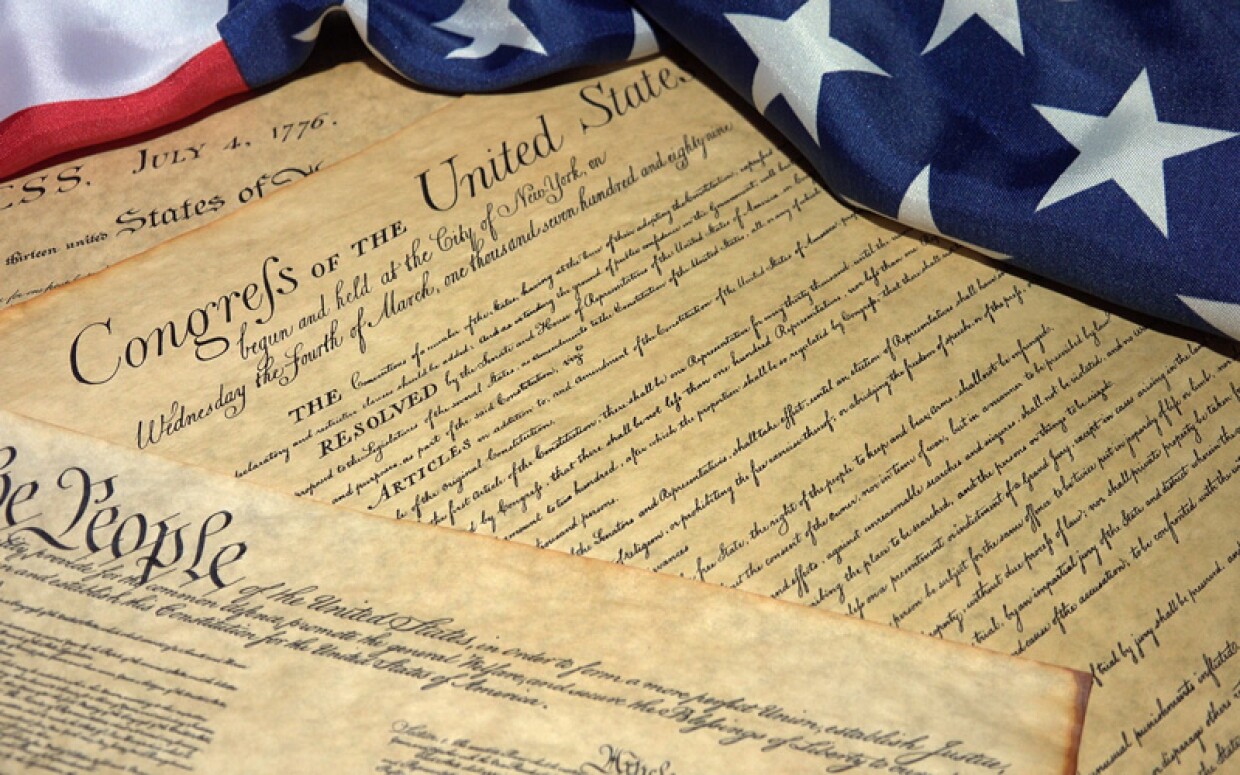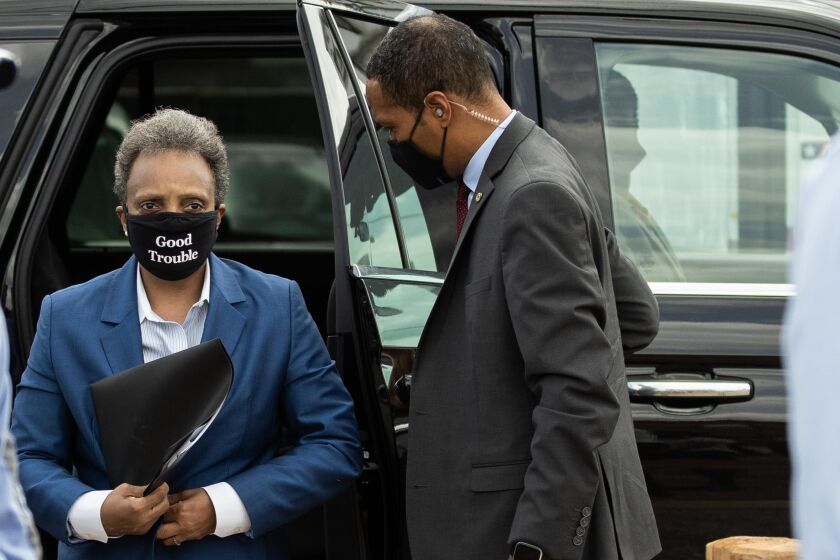By John F. Di Leo, Opinion Contributor
It’s a reasonably short sentence.
In direct contrast to the powerful, accusatory language of the Declaration of Independence, and the lengthy detail of each Articles of the Constitution, the Second Amendment in the Bill of Rights is plainspoken and succinct:
“A well regulated militia being necessary for the security of a free state, the right of the people to keep and bear arms shall not be infringed.”
Contrary to the multitudes of opponents who insist that this statement is nuanced, or complex, or vague, it just isn’t. In fact, it’s every bit as clear as it seems.
It begins, in a format recognizable as a standard “whereas clause,” by explaining why the amendment is needed: Because for a free state to be secure – that is, for free citizens to live in safety – you need a well regulated militia.
The opponents start right there: they shout “See! It’s saying we need an army! Of course we need an army! It’s about the army, not about you proles at all!”
But the opponents are wrong, for a number of reasons.
Our Framers were being crystal clear, but it was in the language of the 18th century, when people understood the English language, and understood common law and common sense. Today, unfortunately, we need some definitions.
1). The militia – as used in this context – is not the army. In a way, it’s the opposite of the army; it’s the civilian citizenry. The militia doesn’t have ranks, or government organization, or boot camp. The militia is the people; it’s you and me. This term – the militia – represents all free citizens of age. Yes, all. If you’re old enough to hold a knife, bow, or rifle, as long as you’re not a criminal in jail or a foreign agent (and yes, most non-citizens would be assumed to be foreign agents for these purposes), you share in the obligation to keep your family and community safe. And that means you have the right and the need to be armed – as well armed as anyone you may have to put up a defense against. You can’t be a part of a militia without being armed, and the militia is, by definition, all free citizens of age.
2). Well regulated – as used today, in the 21st century – is assumed to mean “governed by a horde of empowered bureaucrats.” But nothing could be further from the truth, when we read this in the context of the 18th century. When the Framers wrote this clause, there was no bureaucracy; the concept of the modern regulatory state did not exist. To the writers of the clause, the great concern would be that we would be counting on a militia that wasn’t practiced, wasn’t experienced, didn’t know how to use these firearms to which we’re promising they’ll always have access. Back in the 18th century, the term “well regulated” meant that the citizens would grow up with weapons in the home, using them all the time, for hunting and target practice and sport, in order to be expert in their use whenever they were needed for something serious, like defense against highwaymen, foreign invaders, or even our own government, if it turned tyrannical.
3). A free state – as used in the 18th century – was very much an enlightenment term. We, the newly formed United States of America – were to be free in multiple ways. We would no longer be colonies of a distant empire, ruled by a king in England. We would not be a feudal society, with serfs following the orders of nobles, those nobles following the orders of higher nobles, every town a vassal of some more important town. Rather, we would be independent states, collaborating in a federation, every level of republican government carefully designed to protect the liberty of its people. To be such a free state – to be free citizens in free counties in free states in a free country, in fact – we need to be in control of our own security. We cannot be free if we don’t have the power to remain free. So there may be police, state troopers, army and navy, sure, but at the core, each individual free citizen must have the right and means to defend that freedom.
A few points should stand out here, when we consider this whereas clause and its presence in the Constitution.
The Constitution itself has a “whereas clause” like this at the beginning (known as the Preamble); that is the only such whereas clause in the document. None of the Articles, none of the other Amendments in the Bill of Rights, begins with a justification clause; this is the only one.
One thing of which we can be certain, from reading this very clear, focused document, is that the Founding Fathers did not waste words. If they included something, it was because it mattered to them.
Now, the focus of the Amendment itself – the rest of the sentence, after the whereas clause – is quite straightforward: “…the right of the people to keep and bear arms shall not be infringed.” That could easily stand on its own, couldn’t it? It says, point blank, that if people propose restricting the people’s rights to be armed, such restrictions are utterly forbidden.
It’s plain as day. So why add this explanatory clause at the beginning?
Because they knew – beyond the shadow of a doubt – that someday, people would need to understand why this right is in place, why it’s so important, why it is in fact fundamental to the construction of this very nation.
Someday, people would say “but they COULDN’T have meant that!” And we would have to think about why the Founders did in fact mean this.
Today, for example, the detractors might ask, “but you can’t just let everyone have weapons — that guy next door is a convicted murderer, out on parole; that guy across the street is a convicted pedophile, free after a short imprisonment… that guy down the block was convicted of violent rape and armed robbery, set free in a prison release because the jails were too crowded. We shouldn’t let them have guns! The 2nd Amendment doesn’t make any sense if it lets these guys have guns!”
And that argument is partially correct. These felons shouldn’t have guns. But we’re asking the wrong question. The right question is, “why are they on this block at all; why aren’t they still in jail, or in the grave?” Whether they have guns or not, they shouldn’t be here. The Founding Fathers would have said, for crimes like these, they should have been jailed for life, or more likely, been promptly executed. These are capital crimes.
In short, the problem isn’t with the 2nd Amendment; the problem is that our society keeps intentionally setting known criminals free.
Or today we might ask, “but you can’t just let everyone have weapons; there are half a million illegal aliens in Chicago, a million or more in greater Los Angeles. Hundreds of thousands each in practically every state of the union, for a total of about thirty million illegal aliens, people raised in 3rd world countries that don’t share our values, our traditions, our culture, even our average IQ. Surely we shouldn’t entrust them with firearms!”
Again, while there’s a nugget of truth in the argument, it’s the wrong question being asked. Why are these illegal aliens e here at all? Why has the Democratic Party made it their top priority for decades to change the societal mix in the United States? Why have the Democrats ensured a porous border that would flood the nation with millions of people who are criminal by definition, outlaws by definition, people to whom the Enlightenment philosophy of our Founders is so alien, it may as well be written in hieroglyphics?
So, yes, there are plenty of people who should not enjoy the right to bear arms and it is society’s job – and specifically, government’s job – to put those criminals behind bars, and to again enforce our nation’s borders.
But that doesn’t mean you deal with one severe constitutional failing – the failed job of governments to enforce our borders and to operate an effective criminal justice system – by creating a second severe constitutional failing – denying a basic, critical right to the nation’s free citizens.
In fact, the worse these two failings get, the more important this particular right is, to each and every one of us free citizens. We need to be able to defend ourselves – and our homes, families, businesses and communities – all the more, specifically because the government has intentionally ensured that we would have more threats than ever, more threats, in fact, than any governmental criminal justice system can handle.
The 2nd Amendment isn’t just as important as it was when it was written; it’s even more so today. More so than ever before.
Our Founding Fathers saw the future, and they wisely gave us the tools to protect ourselves from it.
Copyright 2023 John F. Di Leo
John F. Di Leo is a Chicagoland-based trade compliance trainer and transportation manager, writer, and actor. A one-time county chairman of the Milwaukee County Republican Party, and former president of the Ethnic American Council, he has been writing regularly for Illinois Review since 2009.
A collection of John’s Illinois Review articles about vote fraud, The Tales of Little Pavel, and his 2021 political satires about current events, Evening Soup with Basement Joe, Volumes One and Two, are available, in either paperback or eBook, only on Amazon.









